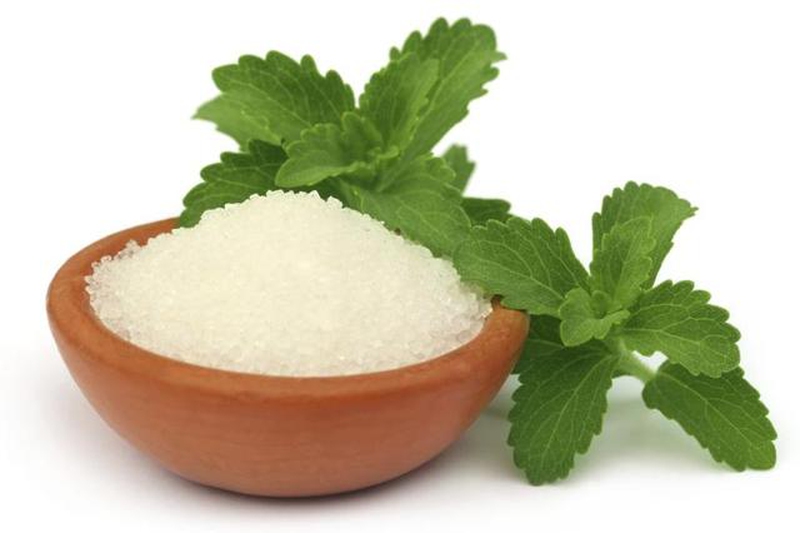In South America, the stevia plant has been used as a natural sweetener, medicine and to create sweet treats. For nearly 1500 years, this plant has been used to treat burns, calm stomach issues, reduce colic and some have even used it as a natural contraceptive. With so many beneficial reasons to use stevia, is stevia bad for you in any way? Read on to learn more about the sugar alternative.

Is Stevia Bad or Good?
Benefits
Regulates blood sugar. One of the most well-known benefits of stevia is its ability to help maintain healthy blood sugar levels. Stevia contains steviosides, a non-carbohydrate glycoside which is absorbed by the colon instead of being distributed into the bloodstream. Those with diabetes will benefit greatly by replacing other sugar alternatives with stevia because it still gives the same sweetness but does not affect the glucose levels like other sweeteners.
Maintains a healthy weight. For those who are watching what they eat to help them lose weight, stevia can assist in weight loss. With a low-calorie count and 40 to 300 times the amount of sweetness, stevia can be used in baking and to sweeten drinks without adding the excessive calories that can pack on the pounds.
Lowers blood pressure. Some of the glycoside compounds in stevia can help reduce blood pressure. This is because these glycosides relax blood vessels and promote urination which helps remove the sodium in the body. Less stress is placed on the cardiovascular system which means the blood pressure remains lower and the heart stays protected. Switching to stevia can help prevent some cardiovascular conditions like stroke, heart attacks, and atherosclerosis.
Better for oral health. Is stevia bad for you when it comes to your oral health? Stevia can actually be good for it. Stevia is often added in many toothpaste or mouthwashes because it reduces the bacteria that builds in the mouth, which can help prevent cavities and gingivitis.
Treats skin conditions. Stevia is even good for you skin. The antibacterial properties in stevia can help treat eczema, dermatitis and other skin conditions. Used as a topical cream, it reduces the spread of bacteria to other areas of the skin and acts similarly to a steroid to provide relief from various skin irritations.
Reduces the risk of cancers. The antioxidants found in stevia help rid the body of free radicals. These free radicals can increase the chances of healthy cells mutating into cancer cells, which is why stevia can be an ideal way to help reduce the risk of certain cancers if taken daily.
Side effects
Additives. There may be fillers and other additives in store bought stevia products or products you purchase online. Some of these can include maltodextrin, dextrose, cellulose, and other natural flavors. Before buying stevia, be sure to check the labels to see what else could be included in it. The price can also be telling as to whether it contains fillers or not, usually inexpensive stevia products will contain fillers which is why it is much cheaper.
The taste. Not all stevia is the same and this can result in some not having a pleasant taste. You might have to try a few different products until you find one that will not leave a bitter aftertaste in your mouth.
Hypoglycemia. Is stevia bad for you if you already have low blood sugar? As mentioned, stevia can help lower blood sugar and some claim that it can cause hypoglycemia. Some believe that because stevia has a sweet taste so that this encourages the body to remove glucose from its system. This can result in the adrenals being over stressed and glucose levels to remain low. This is not the case for everyone, so it is best to check your blood sugar levels to ensure they do not reach an abnormally low point.
Fertility problems. Some parts of the world use stevia as a contraceptive, which can result in having issues with fertility. Again, this is not the case for everyone who consumes stevia and it is something you would further want to talk to your doctor about.
Insufficient glycogen. Glycogen is needed to convert the inactive T4 thyroid hormone to the active T3 hormone. You get the proper amount of glycogen from natural fruit juices or natural sugars. If you are eating a low carb diet that doesn't include enough fruits because you replaced your fruits with stevia, this can result in a lack of glycogen. This low glycogen consumption can lead to adrenal or thyroid issues.
Allergic reactions. Is stevia bad for you if you have certain allergies? As with any type of foods products, some people may have allergic reactions to it. Those who tend to be at a higher risk of allergic reactions to stevia are those with ragweed, marigold or chrysanthemum allergies as stevia is related to these allergens.
View All Comments /Add Comment